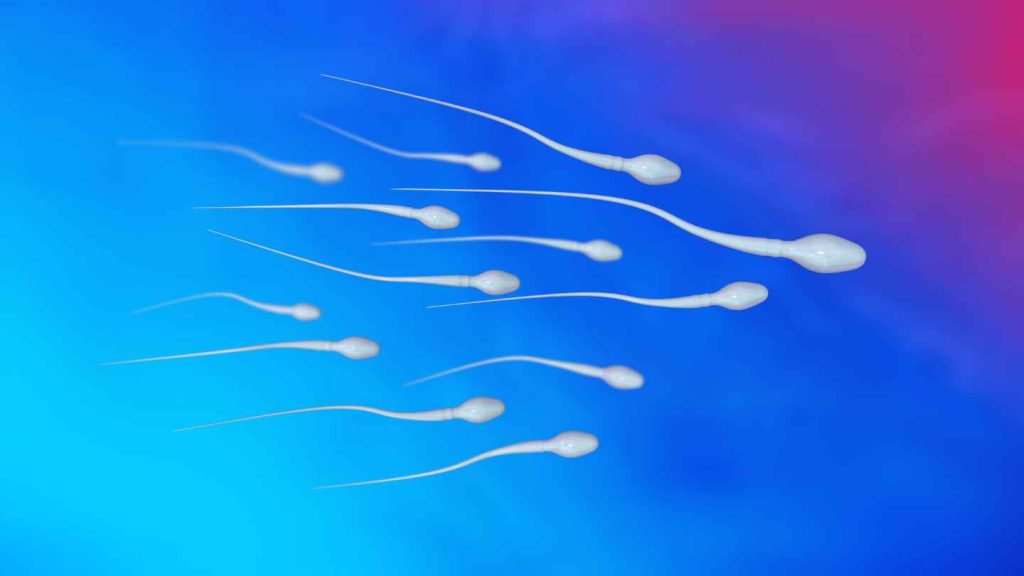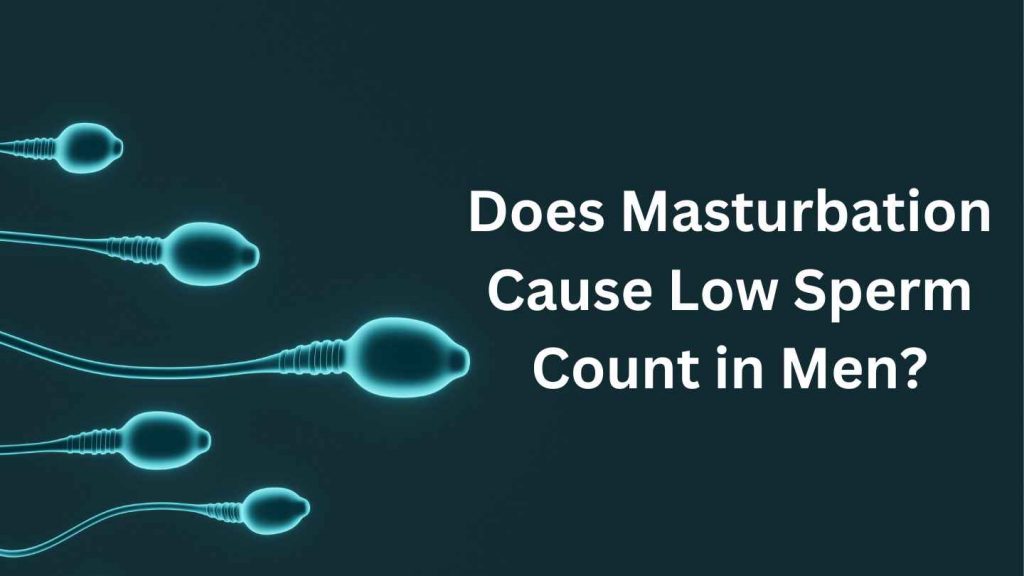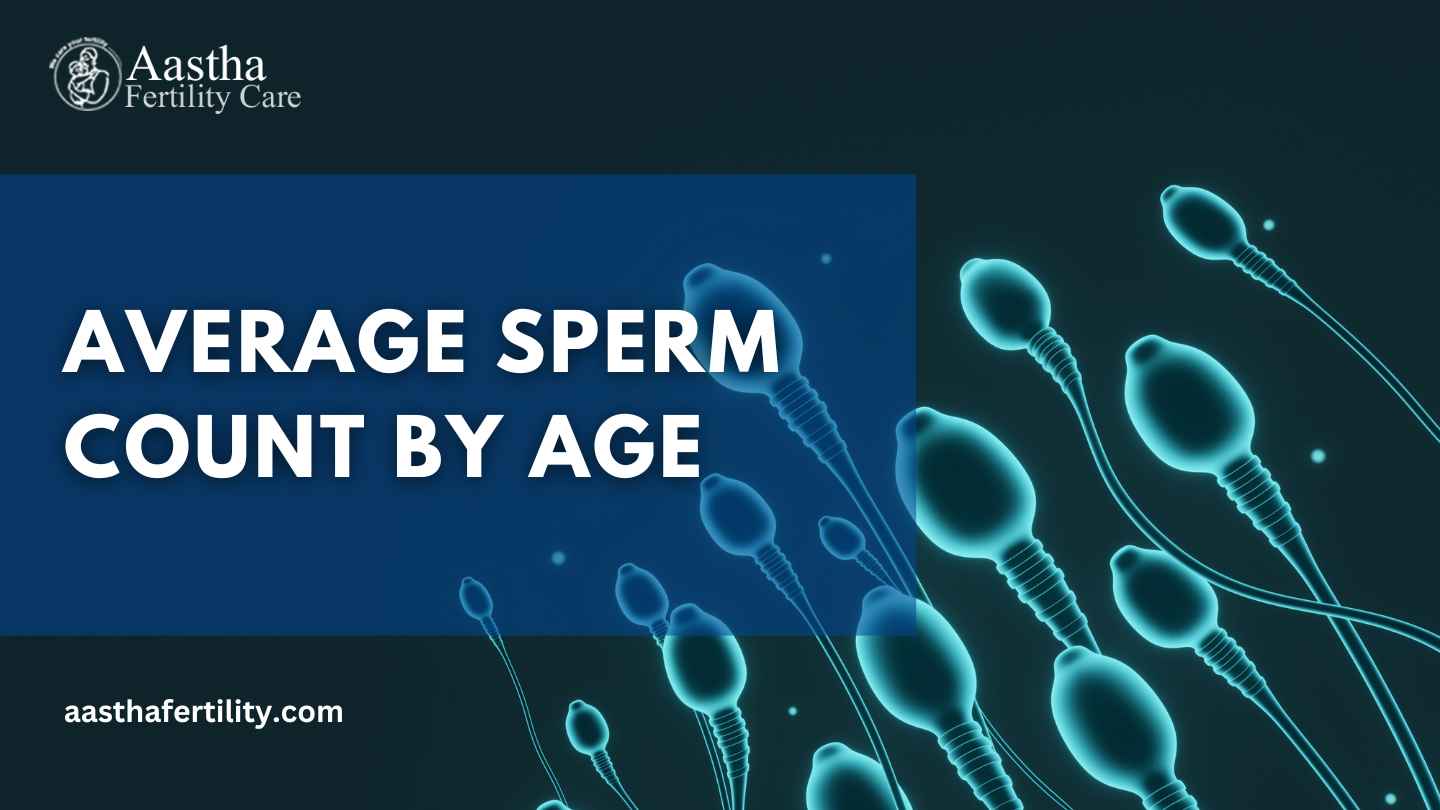Table of Contents
ToggleMale infertility has become a severe problem globally; about 7 percent of men worldwide suffer from sexual diseases like low sperm count and early ejaculation. Research says that a million couples seek a diagnosis of infertility annually; half of the cases are of male infertility.
Over the years, there has been a decline in semen quality in men, which could be environmental, nutritional, socioeconomic, or in some percentage, unknown causes.
The other causes for low sperm count in men are complex lifestyles, stress, and unhealthy habits that have led to bad sexual health among adults, which has severe effects on the sperm count of males. Finding the early low sperm count signs will help you fight against this cause with effective treatments. But first, let us understand what low sperm count is.
What Do You Mean By Low Sperm Count?
Low sperm count is when the semen ejaculated has less sperm than otherwise usual.
Less than 15 million sperm per milliliter of semen or less than 39 million total sperm per ejaculation is considered less than an average sperm count. A lower sperm count is referred to as Oligospermia.

Low Sperm Count And Its Impact On Fertility
The fewer or low sperm presence denotes low sperm count than normally is in the semen (fluid) you release in an orgasm episode. Oligospermia, pronounced as (ol-ih-go-SPUR-me-uh), is an additional title for low sperm count. Nil count of sperm is called azoospermia. Under fifteen million sperm in each ml of semen shows that the sperm concentration is less than the average concentration.
The potential that your single sperm may fertilize your spouse’s egg and causes pregnancy is far less when your sperm count is not adequate. However, a significant number of men with low sperm counts can still have a kid.
Other Symptoms causing Oligospermia
- When sperm concentration, which is sperm count per milliliter of semen, is below average
- Sperm Motility, which is the percentage of sperm that are actively swimming, is low.
- Sperm Morphology, which is the shape of the sperm, is deformed.
Low sperm count is considered present in men if either of these conditions is present, which is becoming quite familiar over the years.
Low Sperm Count Signs and Symptoms
The main symptom of low sperm count or Oligospermia is infertility.
When the low sperm count is caused by an underlying condition like hormone imbalance, testicular issue, chromosomal abnormality, or blockage, There may be other signs of low sperm count are:
1. Difficulty With Sexual Functions
A man with a low sperm count may have a low sex drive. Low sperm count or Oligospermia decreases the odds of sperm fertilizing a woman’s eggs, leading to pregnancy. Some men with Oligospermia may not face any problem with conception; others may require more attempts to conceive naturally.
2. Less Facial And Body Hair
It could indicate the presence of low male hormones, testosterone, in the body. Decreased body or facial hair could be a sign of hormonal or chromosomal abnormality in a man. We can’t say for sure what’s causing your low sperm count, but there are a few different reasons why this could be happening. Meager body weight and obesity can both lead to changes in testosterone levels. It’s also possible that hormonal imbalances could be the culprit. Sometimes these things manifest as a lack of facial hair as well.
3. Erectile Dysfunction
Men with low sperm counts may find it hard to have a normal drive. It can lead to problems with erections. Difficulty in maintaining an erection is known as erectile dysfunction. Two common causes of erectile dysfunction are low sperm count and hormonal issues. In both cases, a man might experience a lack of libido, as well as trouble maintaining an erection.
4. Swelling or Pain in and Around The Testicles
A man with a low sperm count may have pain or swelling in or around the testicles. It is advisable to get yourself checked by a urologist when facing this problem. There could also be a lump around the genital area that is an indication of low sperm count that the doctor should check immediately.
5. Deep Voice Could Also Indicate Low Sperm Count
Some studies have found that men with deep voices often have low sperm counts. Women like men with deep voices. A deep voice indicates good testosterone levels, but a voice that is too deep may also symptom of low sperm count.
6. Lack of Muscle May Also Be A Low Sperm Count Sign
Men who can’t build muscle may also be more likely to suffer from lower sperm count. Men with too much muscle fat (estrogen) can produce higher estrogen levels, and when estrogen levels go up, your sperm count may decrease.
7. Difficulty Conceiving A Child
The number and count of sperm you have, though, might be your top concern when you and your spouse want to grow your family. Even though it takes a single sperm for egg fertilization, the process might be difficult. Your chances are greater the high sperm count you have. However, when you experience difficulty in conceiving a child, a low sperm count is the primary reason that you couldn’t conceive.
Causes of Low Sperm Count
Medical Causes
- Varicocele: This is a prominent treatable condition of low sperm count. In this condition, the veins responsible for draining the testicles swell. So this might lead to reduced sperm quality.
- Infections: Some infections may hinder the ability of sperm production or affect sperm health, and some STIs may also contribute to this reason. Although certain conditions may cause irreversible testicular damage, sperm retrieval is still possible.
- Antibodies Attacking Sperm: Some immune system cells or antisperm bodies mistakenly consider sperm as invaders and damage them.
- Undescended Testicles: Undescended Testicles, If one or both testicles fail to drop to the scrotum from the abdomen during fetal development, this may result in fertility issues among men.
- Hormonal Imbalances: Testicles, pituitary, and hypothalamus produce vital hormones essential for sperm production. So any alterations in these hormones might lead to low sperm count.
- Defective Tubes Responsible for Sperm Transportation: If the tubes carrying sperm get blocked due to trauma, surgeries, or abnormal development, this might interfere with fertility.
- Some Medications: Taking any medicines or therapy like Testosterone Replacement, chemotherapy, etc. may impair sperm production.
- Surgeries: Any prior surgeries, including vasectomy, scrotal or testicular surgeries, inguinal hernia repairs, prostate surgeries, etc., might prevent having sperm in your ejaculation.
Environmental Causes
Overexposure to a specific environmental element might cause low sperm count. So this includes:
- Industrial Chemicals: Prolonged exposure to organic solvents, pesticides, insecticides, painting materials, etc., might lead to lower sperm count.
- Excessive Heat to The Testicles: Radiation exposure may limit sperm production. Sperm production restoration to normal levels might take years. Significant levels of radiation may irreversibly impair sperm production.
- Radiation or X-rays: Temperatures above normal hinder sperm production and activity. Although research is limited and inconsistent, regular sauna or hot tub usage may temporarily reduce sperm count. Additionally, placing the laptop on your lap may also lower sperm count.
- Exposure to pollutants- Exposure to environmental pollutants such as Lead and other heavy metals and pesticides can decrease sperm count and motility. It is important to minimize exposure to these toxins to avoid damage to DNA and hormone disruption.
Lifestyle Causes
- Drug Usage: Usage of anabolic steroids to boost muscle mass and strength have the potential to shrink testicles and lower sperm counts. Consumption of illicit drugs may also result in a decrease in sperm quantity and quality.
- Alcohol Abuse: Excessive alcohol use may diminish testosterone levels and impact sperm production.
- Smoking: Smoking may diminish sperm counts in men compared to non-smokers.
- Stress: Extreme or prolonged emotional stress might impede the hormones vital for sperm production.
- Depression: Persistent depression harms sperm concentration.
Does Masturbation Cause Low Sperm Count in Men?

Ejaculation usually happens after masturbation. Your sperm count will momentarily decrease, although this doesn’t have any long-term consequences on the quality or quantity of your sperm. Sperm will leave your body with each ejaculation. Regular masturbation might reduce your sperm count and make it harder to conceive if you’re trying to become pregnant with your partner. It is advisable to avoid masturbating if you are planning to start a family. The male will boost fertility if he lets sperm accumulate in the semen instead of continuously diminishing those stores.
Side Effects Of Low Sperm Count Infertility

Low sperm count, also known as oligozoospermia, is a significant cause of infertility. This is a condition where a man has lesser than 15 million sperm per millilitre of semen. However, there are specific treatments and lifestyle that is advised for patients who are in this phase. However, In treating low sperm counts, there are varying side effects. Some of them are;
- Liver damage
- Weight gain
- Blurry vision
- Breast enlargement
- Nausea
- Dizziness
- Headaches
Each of these symptoms is under different treatment or medications. The form of treatment usually determines the form of side effects.
How Low Sperm Count is Diagnosed

You may wish to check with your doctor when you’ve been attempting constant unprotected sex for about twelve months without achieving in making your spouse pregnant. Physical examination, semen analysis, and medical history are often useful for diagnosis.
The ability to count your sperm below a microscope and examine their morphology (shape) and motility (movement) during a semen analysis could be especially beneficial in getting a diagnosis. Due to the significant variation among samples, your specialist might also decide to redo the examination to guarantee reproducible results. A container will probably be given to you at your physician’s office. Whether at home or the clinic, you will be required to masturbate and discharge into the jar. You will be given instructions on taking care of the specimen until you can return it to the laboratory within fifty to sixty minutes you choose to obtain a sample at your residence. Your specialist may suggest more testing based on preliminary results to rule out other potential reasons for infertility besides your low sperm count. These may consist of the following:
- Hormone or chromosomal testing by blood.
- Genetic Tests
- Prostate or testicles to visualize through ultrasound.
- Scrotal ultrasound
- Post-ejaculation urinalysis
- Anti-sperm antibody tests
- Transrectal ultrasound
- Specialized sperm function evaluations
- When there are obstructions, a testicular biopsy is performed to assess sperm production.
These tests can identify structural abnormalities or blockages in the reproductive system. Testing is typically conducted at a fertility clinic or specialised laboratory. By understanding potential causes of infertility, men can explore treatment options to improve their chances of conception.
Treat Oligospermia By Taking Professional Help
The good news is that Oligospermia can be treated both naturally and with professional medical help. Several foods can help boost sperm count, including those rich in Vitamin C and D, dark vegetables, Walnuts, fatty fish, and fenugreek.
Various alternatives are available when you have been identified with a low sperm count:
Surgery- For instance, a varicocele can frequently be surgically fixed, and a blocked vas deferens could be fixed. An earlier vasectomy can be undone. Sperm can frequently be extracted straight from the epididymis or testicles using sperm extraction procedures when there is no sperm in the ejaculate.
Medicines And Therapies For Hormones- When infertility is brought on by high or low amounts of particular hormones or issues with how your system uses hormones, your doctor may advise medicines or hormone replacement.
Therapies for issues with sexual activity- In cases of early ejaculation or erectile dysfunction, medication or counseling may assist in enhancing fertility.
Infection treatment- Although antibiotics may treat a reproductive tract infection, fertility isn’t always returned.
Trying repeatedly- Your specialist might first advise waiting a bit longer to attempt a natural pregnancy. Several couples succeed in getting pregnant after two years of attempting. Your chances of getting pregnant can be increased by engaging in sexual activity every two or three days.
Diet and Nutrition for Healthy Sperm Count
- Consuming a diet rich in antioxidants, omega-3 fatty acids, and zinc can promote healthy sperm production.
- Fruits and vegetables are rich sources of antioxidants and should be included in the daily diet.
- Fish and nuts, such as salmon and almonds, provide omega-3 fatty acids that improve sperm motility.
- Zinc, found in oysters and pumpkin seeds, can increase testosterone levels and sperm count. To incorporate these foods into the diet, one can add them to salads, and snacks or consume them separately.
Prevention
Avoid proven factors that could lower sperm quantity and quality to preserve your fertility. For example:
- Avoid smoking.
- Limit or avoid drinking alcohol.
- Avoid using illegal substances.
- Address drugs that may lower sperm count with your doctor.
- Keep a healthy weight.
- Prevent heat.
- Stress management.
- Avoid being exposed to pollutants such as pesticides and heavy metals.
Low Sperm Count And Fertility Treatment
Low sperm count could also make it difficult or, in many cases, impossible for a man to provide quality sperm, leading to difficulty in natural conception. In such cases, the help of medical procedures like IUI and IVF are taken to conceive a biological child.
Even with the help of Assisted Reproductive Technology (ART), the success rate of IUI and IVF could be affected because of low sperm quality. In such cases, a donor’s sperm can be used to fertilize a woman’s egg.
# Male Low sperm Count And IUI:
IUI can increase the chances of pregnancy in couples where a man suffers from low sperm count affecting his fertility. Since the sperm used is of the male partner, its quality plays a vital role in the success of this treatment.
# Male Low sperm Count And IVF:
IVF Treatment is done using a couple’s eggs and sperm. In cases where a man has low sperm count or has sperm with poor motility, the sperm can still be used to fertilize an egg through IVF by placing the egg and the sperm closer to each other in a laboratory dish.
Astha Fertility Clinic is amongst the foremost fertility care centers with the most advanced treatment for infertility caused by male Oligospermia or any other sexual issues.
Conclusion
Although a low number of sperm may have many issues, the major concern is infertility or sexual issues. However, low sperm counts do not preclude pregnancy in a couple. It can simply take longer than you anticipated, and you might need to visit a doctor to find out how to improve the quality of your sperm. In addition, when you experience symptoms of low sperm count such as difficulty ejaculating, testicular pain, or previous procedures, you might wish to book an appointment immediately.
Frequently Asked Questions
1. Are there any foods that increase sperm count in men?
Many foods will help improve sperm counts like food rich in Vitamin C and D, dark and leafy vegetables, Walnuts, fatty fish, and fenugreek.
2. Does smoking affect sperm count?
Yes, research has shown that smoking does affect sperm, making them smaller and slower. It also harms DNA.
3. What are the risks with IVF/ IUI?
There are a few risks with IVF, like mild ovarian hyperstimulation which happens to about 10-20 women out of 100 who try IVF. Multiple births can also occur because of IVF.
4. Which exercises increase Sperm?
A study published by National Library of Medicine, weight lifting, running, and jogging were connected with greater sperm levels than other forms of exercise, such as walking and aerobics. Some studies suggest that some forms of exercise, such as bicycling, may be related to a decrease in sperm count, but further study is essential to determine which forms of exercise are most beneficial.
5. How much sperm do you need to get pregnant?
If the sperm are healthy, 20 million sperm per milliliter may be enough for pregnancy.
6. Is there any physical change that can tell if I have a low sperm count?
No, there are no specific physical changes to confirm one has a low sperm count. Although, decreased facial or body hair may be a pointer to hormonal imbalance, which in turn is a cause of low sperm count.
7. Which is the best treatment for low sperm count in India?
The andrologist at Aastha fertility care can prescribe your medicine along with lifestyle changes. Consult with him for the best treatment for low sperm count in India.
8. Can low sperm count return to normal?
Yes, low sperm count can return to normal. However, it takes several years with a consistent and high radiation dose. Sperm production can be returned to normal.
9. What does 0 sperm count mean?
Another name for 0/zero sperm count is Azoospermia. Azoospermia refers to a complete absence of sperm in the ejaculate. It simply means that there is no sperm in a male’s ejaculate. This can be due to a production disorder triggered by hormonal or genetic abnormalities. In order words, it may be caused by a blockage in the reproductive tract, hormonal problems, ejaculatory problems, or anomalies in the shape and function of a male’s testicle structure or function.
10. How long does a low sperm count last?
Although sperm regeneration is not instantaneous, the body of a male is constantly synthesizing sperm. It involves around 74 days to complete the process of producing new sperm. However, the average time is 74 days, and the actual time frame for a specific individual to make sperm can differ.
11. How do you check for a low sperm count? What is the diagnosis test called?
Low sperm count is usually examined as part of the semen test analysis. The diagnostic test is called “semen test analysis“. It is a test carried out to assess the health and viability of sperm cells under a microscope. It is done by checking how much sperm you can count within squares on a grid. High advanced labs have software that can measure sperm count.
12. Can infection lead to low sperm count?
Yes, it can. Infection is one of the medical causes of low sperm count.
13. Can low sperm count be temporary?
It can if proper medications and treatments are taken to boost sperm production.
14. How healthy does sperm look?
Healthy semen is cloudy white with a jelly thickness similar to a raw egg.
15. Can low sperm count be a sign of other health problems?
Certain medical issues are indicators of low sperm count, including varicocele, infections, etc.





Leave a comment